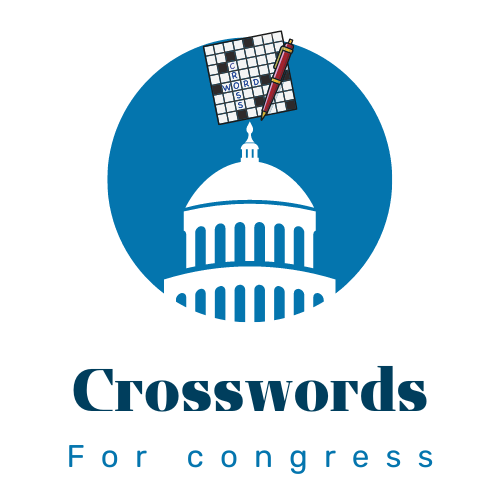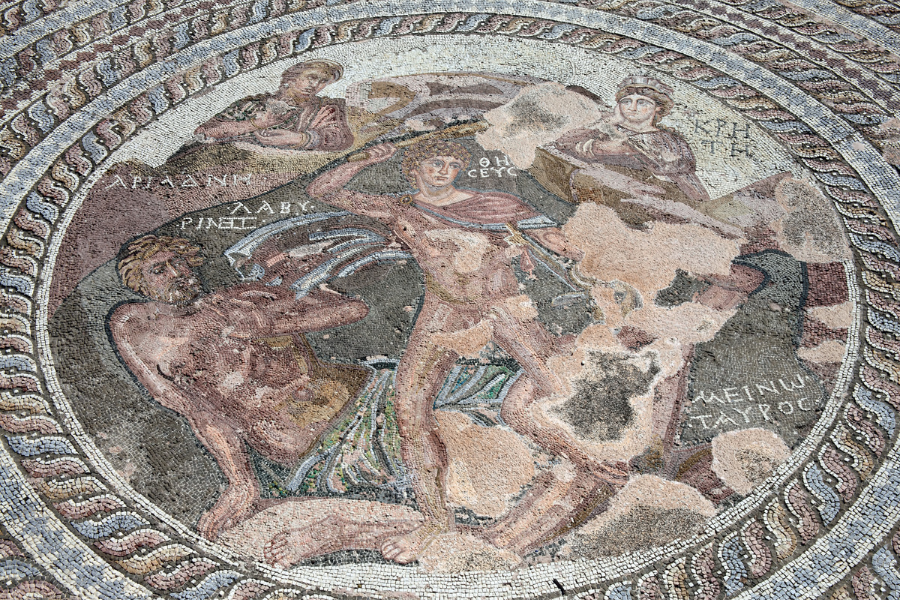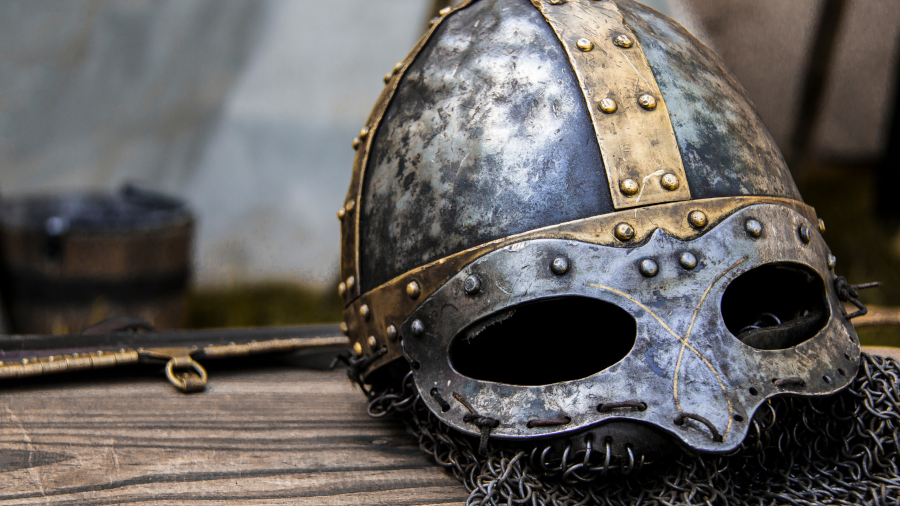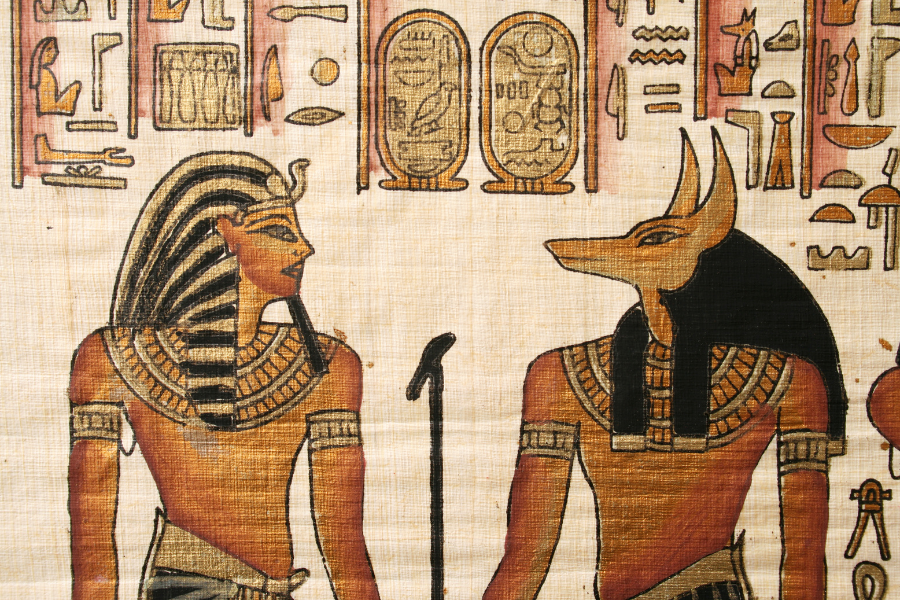Hello, puzzle enthusiasts! Ever found yourself stumped on that one crossword clue hinting at a Norse god or goddess? Worry no more!
With the enchanting world of Norse mythology, not only do you get epic tales of valor and mischief, but you also get some prime crossword material.
Dive in as we unravel a treasure trove of Norse deity names, ranked by letter count, to give your crossword-solving skills a mythological boost. Let’s dive straight into this legendary list!
How many letters in these Norse Gods & Goddesses names?
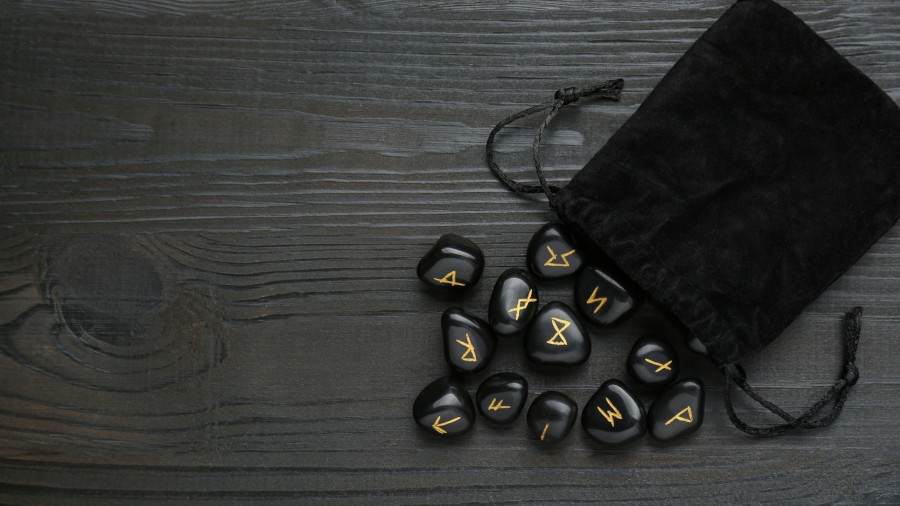
Dive into the captivating world of Norse mythology with this concise table!
I’ve laid out Norse deities by their name lengths, and even give you their names in original Norse and the Anglicized version. So, you can figure out exactly which name fits your crossword clue.
If you are more of a visual learner, then you might also want to check out the video I made going through all of the Norse Gods that might find their way into your crossword puzzle.
| Norse Name | Anglicized Name | Number of letters |
|---|---|---|
| Vé | Ve | 2 |
| Eir | – | 3 |
| Hel | – | 3 |
| Rán | Ran | 3 |
| Sif | – | 3 |
| Týr | Tyr | 3 |
| Vár | Var | 3 |
| Vör | Vor | 3 |
| Borr | – | 4 |
| Búri | Buri | 4 |
| Elli | – | 4 |
| Hlín | Hlin | 4 |
| Höðr | Hoor | 4 |
| Jörð | Jord | 4 |
| Lofn | – | 4 |
| Loki | – | 4 |
| Máni | Mani | 4 |
| Nótt | Nott | 4 |
| Sága | Saga | 4 |
| Þórr | Thor | 4 |
| Ullr | – | 4 |
| Váli | Vali | 4 |
| Sol | – | 4 |
| Óðinn | Odin | 4 |
| Bragi | – | 5 |
| Dagur | – | 5 |
| Freya | – | 5 |
| Freyr | – | 5 |
| Frigg | – | 5 |
| Fulla | – | 5 |
| 6 | ||
| Iðunn | Idunn | 5 |
| Magni | – | 5 |
| Mímir | Mimir | 5 |
| Nanna | – | 5 |
| Sigyn | – | 5 |
| Sjöfn | Sjofn | 5 |
| Skaði | Skadi | 5 |
| Sunna | – | 5 |
| Víðarr | Vidar | 5 |
| Njörður | Njord | 5 |
| Hœnir | Hoenir | 6 |
| Baldur | – | 6 |
| Ēostre | Eostre | 6 |
| Gefjun | – | 6 |
| Kvasir | – | 6 |
| Snotra | – | 6 |
| Thruer | – | 6 |
| Hermóður | Hermod | 6 |
| Delling | – | 7 |
| Forseti | – | 7 |
| Nerþus | Nerthus | 7 |
| Yggdrasil | – | 9 |
| Heimdallur | – | 10 |
Digging Deeper: The Roles and Tales Behind the Names
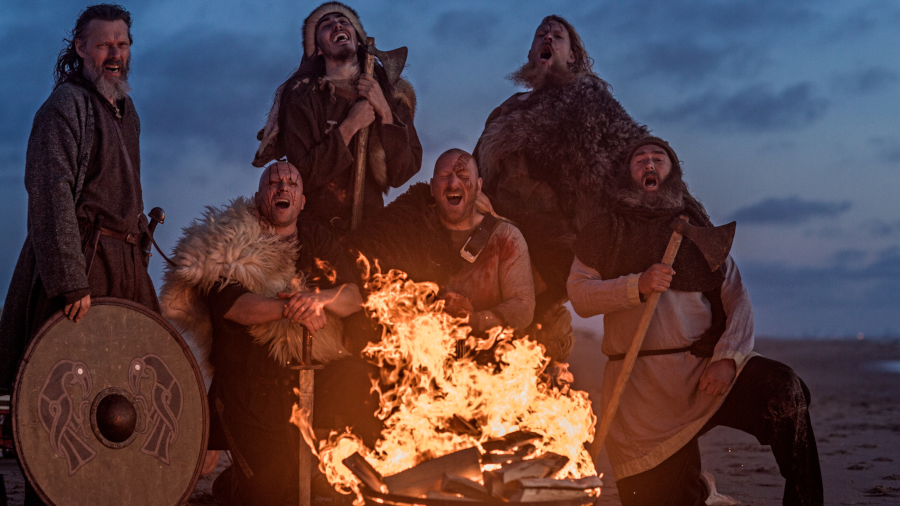
While the names of Norse gods and goddesses carry a certain allure, the stories behind them are where the real magic lies.
In the upcoming section, we’ll venture beyond the surface. Prepare to embark on a journey that unravels the rich tapestry of roles, tales, and legends associated with these enigmatic figures.
It’s time to delve into the heart of Norse mythology and uncover the essence of each deity!
Norse Gods with 10 – 7 letters in their names
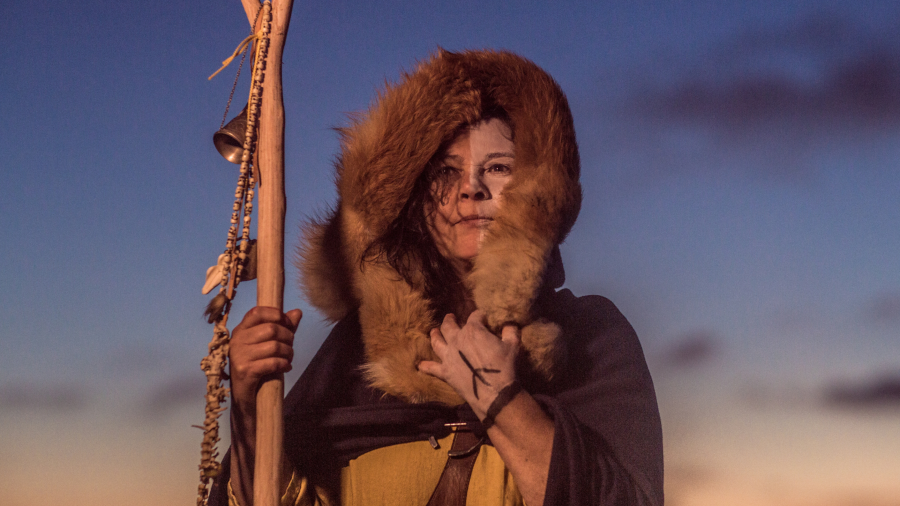
Heimdallur
(10 letters)
One of the most intriguing figures among the Æsir, Heimdallur is the vigilant guardian of the Bifröst, the burning rainbow bridge that connects the realm of the gods, Ásgarð, to Midgard, the world of humans. Born of nine mothers, Heimdallur possesses keen senses that allow him to hear the softest sounds and see hundreds of miles by day or night. Legend holds that he requires less sleep than a bird. His most significant role will be during Ragnarök when he’ll sound his Gjallarhorn to alert the gods of the approaching end.
Yggdrasil
(9 letters)
Yggdrasil, the mighty Tree of Life, is more than just a tree; it’s the central and sacred pillar of the Norse cosmos. Its branches stretch out over all of the nine realms, and its roots delve into three significant wells. One of these wells is guarded by the Norns, the Norse fates, who carve runes into Yggdrasil’s trunk, shaping the destinies of both gods and men. Various creatures inhabit Yggdrasil, from the wise eagle perched atop its branches to the malicious serpent, Níðhöggr, gnawing at its roots.
Forseti
(7 letters)
Forseti, the embodiment of justice and reconciliation, is said to have the power to resolve any dispute. His hall, Glitnir, shines brightly in the heavens, a beacon for those seeking justice. Interestingly, the hall’s pillars are made of red gold, and its roof is adorned with silver, representing the preciousness of justice. Ancient texts suggest that disputing parties left his hall always in agreement, a testament to Forseti’s unparalleled mediation skills.
Delling
(7 letters)
The very embodiment of the first light that touches the horizon, Delling is revered as the God of Dawn. His significance in Norse mythology is often associated with beginnings and rebirth. Delling is the third husband of Nótt, the night, and together they gave birth to Dagr, the day. This beautiful union symbolizes the cyclical nature of time, where the end of night paves the way for the dawn.
Nerþus
‘Nerthus‘
(7 letters)
An enigmatic figure, Nerþus is a goddess whose existence and significance are derived from the writings of Tacitus, a Roman historian. She is believed to be closely connected to the earth and nature. While not much is detailed about her in the Norse sources, her name is linguistically connected to Njörður, suggesting a deep-rooted reverence and perhaps an ancient shared origin in the pantheon.
Norse Gods with 6 letters in their names
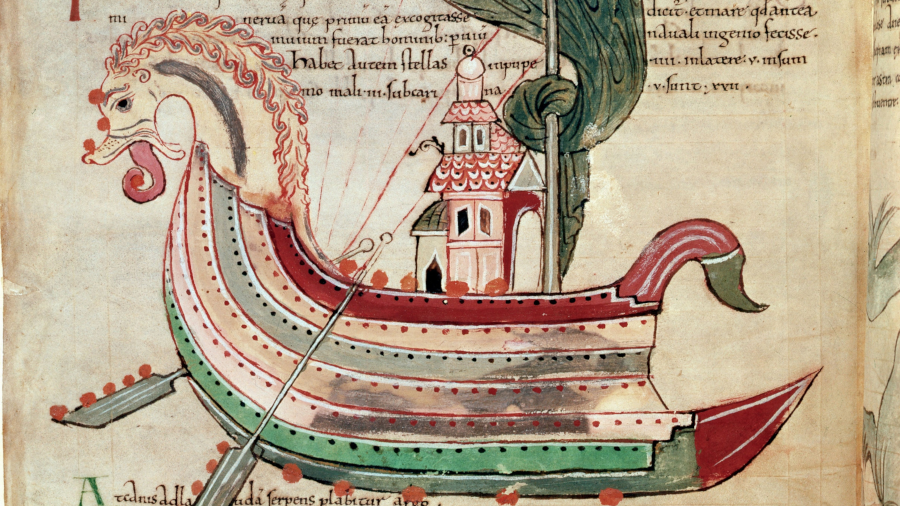
Hermóður
‘Hermod‘
(6 letters)
Often described as the “bravest of the gods,” Hermóður’s quest to Hel to retrieve his brother Baldur is one of the most touching tales in Norse lore. Riding Sleipnir, Odin’s eight-legged steed, he journeyed to the land of the dead and pleaded with Hel, the ruler of the underworld, to release Baldur. His mission was a testament to the strong bond of brotherhood and the lengths one would go for love.
Snotra
(6 letters)
Representing the virtues of wisdom and self-discipline, Snotra is the Goddess of Prudence. In a pantheon filled with deities that often act on impulse, Snotra’s demeanor sets her apart. She symbolizes the value of introspection, restraint, and learning, reminding us of the importance of thoughtful action.
Thruer
(6 letters)
While not a prominent figure in the grander tales of Norse mythology, Thruer holds a special place as the daughter of the mighty Thor, the god of thunder, and Sif, a goddess associated with earth and fertility. Her lineage alone suggests a blend of immense power and nurturing grace.
Baldur
(6 letters)
Hailed as the god of beauty, innocence, peace, and rebirth, Baldur is one of the most beloved figures in Norse mythology. His radiant presence brings joy to all who witness him. However, his life is marked by a tragic prophecy: he is destined to die, a fate that the gods try in vain to prevent. Despite the best efforts, he is slain by a mistletoe arrow, an event that sets the stage for Ragnarök. His death and subsequent attempted rescue from the underworld by Hermóður highlight the themes of sacrifice, love, and the inevitable cycle of life and death.
Ēostre
(6 letters)
Revered as the Goddess of Spring, Ēostre symbolizes rebirth, renewal, and the blossoming of life. While her mentions in Norse sources are scarce, her legacy lives on, as many believe that the Christian celebration of Easter derives its name from her. Her association with hares and eggs further reinforces the themes of fertility and the resurgence of life.
Gefjun
(6 letters)
As the Goddess of Fertility and Plough, Gefjun is deeply rooted in the earth and agriculture. One of her most famous tales involves her cunningly acquiring a piece of land from King Gylfi of Sweden. She transformed her four sons into oxen and plowed the land, eventually creating the island of Zealand, where Copenhagen now stands.
Kvasir
(6 letters)
Kvasir, the God of Inspiration, was born from the saliva of both the Æsir and the Vanir gods, symbolizing the truce between the two tribes. He is renowned for his wisdom and knowledge, answering any question posed to him. However, his story takes a tragic turn when he is killed by two dwarves who mix his blood with honey, creating the Mead of Poetry. This mead endows the drinker with the gift of poetry and wisdom.
Hœnir
‘Hoenir‘
(6 letters)
Often referred to as the “Silent God,” Hœnir is enigmatic, with his silence speaking volumes. After the Aesir-Vanir war, he was sent as a hostage to the Vanir, marking a truce between the two warring factions. Though he stands tall and regal, his reticence often leaves him reliant on others for counsel. His presence in the pantheon underscores the value of contemplation and the mysteries that often lie beneath the surface.
Norse Gods with 5 letters in their names
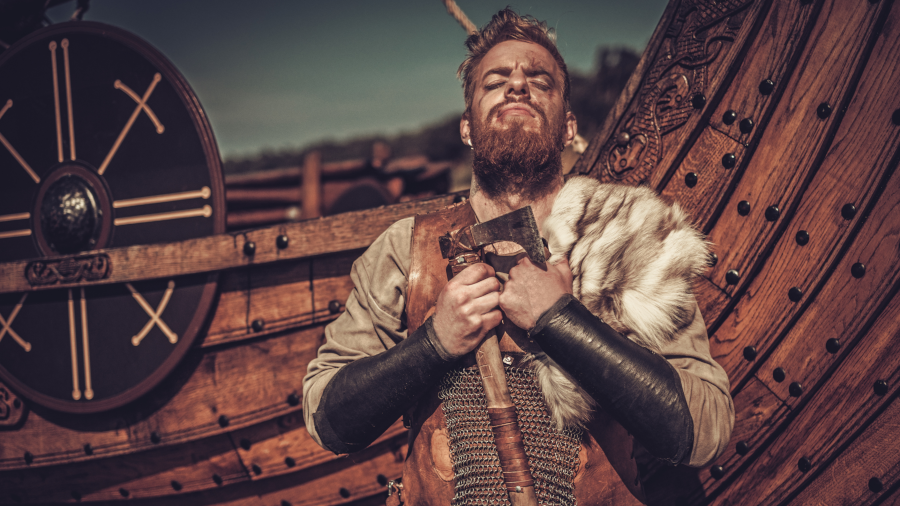
Víðarr
‘Vidar‘
(5 letters)
Often described as the silent god, Víðarr is the deity of the forest, revenge, and importantly, silence. His role becomes pivotal during Ragnarök, the end of the world. In this great battle, Víðarr avenges his father Odin’s death by confronting and slaying the wolf Fenrir. He does this by using his thick shoe, which is made from all the leather scraps discarded by shoemakers, showcasing the theme of collective contribution and revenge in the face of overwhelming odds.
Njörður
‘Njord‘
(5 letters)
As a Vanir deity, Njörður is closely associated with fertility, prosperity, and the blessings of the sea. He’s the father of the twins Freyr and Freyja, other significant deities in Norse mythology. His marriage to the mountain giantess Skadi, after she chose him thinking she was selecting the god Balder, is a tale of opposites. They lived alternately in his sea-side abode and her mountain home but could never reconcile their differences, symbolizing the eternal struggle between the mountains and the sea.
Sunna
(5 letters)
Often synonymous with Sól, Sunna is the Norse personification of the Sun. In a cosmos where the sun and moon are pursued by wolves, Sunna drives the sun’s chariot across the sky, chased by the wolf Sköll. The eventual capture of the sun by the wolf is believed to be one of the events leading to Ragnarök, underscoring the delicate balance between light and darkness in Norse cosmology.
Nanna
(5 letters)
Nanna is the embodiment of joy and peace in the Norse pantheon. As an Ásynja, she is deeply intertwined with the affairs of the gods. Her marriage to the beloved god Baldur ties her to one of the most poignant tales in Norse mythology. Tragically, after Baldur’s untimely death, Nanna dies of heartbreak, showcasing the profound depths of her love and devotion.
Sigyn
(5 letters)
In the complex web of Norse deities, Sigyn stands as a beacon of fidelity and unwavering loyalty. As the devoted wife of Loki, the trickster god, she showcases her commitment during his punishment after the death of Baldur. When Loki is bound by the gods and a serpent drips venom upon him, Sigyn stays by his side, holding a bowl to catch the venom, only leaving to empty it. Her enduring love and dedication contrast sharply with Loki’s often capricious nature.
Sjöfn
‘Sjofn‘
(5 letters)
Representing one of the purest emotions, Sjöfn is the Goddess of Love in Norse mythology. While not as prominently featured in the grand epics, her influence is felt throughout, as love acts as a driving force in many tales, from star-crossed lovers to familial bonds. Sjöfn’s essence reminds us of the power of love and its ability to shape destinies.
Skaði
‘Skadi‘
(5 letters)
With a heart as cold as the mountains she hails from, Skaði is the formidable Goddess of Winter. A giantess by birth, she becomes part of the Aesir through her marriage to Njörður. Their union, however, is a turbulent one, highlighting the clash between her love for the icy mountains and his preference for the seashore. Skaði is also a skilled huntress, often depicted with her bow, hunting in the mountains.
Fulla
(5 letters)
One of the principal attendants to Frigg, the queen of the Aesir, Fulla is often envisioned with a golden headband and long, flowing hair. As Frigg’s confidante, she is entrusted with her mistress’s secrets and even her footwear. Fulla’s role, though seemingly subdued, is pivotal as she stands as a testament to the bonds of trust and servitude in the divine realm.
Iðunn
‘idunn‘
(5 letters)
The keeper of the apples of youth, Iðunn is the embodiment of rejuvenation and immortality in Norse mythology. As the consort to Bragi, the god of poetry, she holds the key to the gods’ eternal youth. Her significance becomes evident when she is abducted, leading the gods to age rapidly. It is only upon her return that they regain their vitality, emphasizing the crucial role she plays in sustaining their eternal essence.
Magni
(5 letters)
As the son of the mighty Thor and the giantess Járnsaxa, Magni inherits unparalleled strength. His might is showcased when he is merely three days old, assisting his father by lifting the massive leg of a slain giant off Thor. Representing raw power and resilience, Magni is a testament to the indomitable spirit of the gods, echoing his father’s strength and valor.
Mímir
(5 letters)
Mímir, known for his profound wisdom and knowledge, is one of the most intriguing figures in Norse lore. As Odin’s uncle, he guards the well of wisdom located at the roots of Yggdrasil. In a quest for knowledge, Odin sacrifices an eye to drink from this well. Mímir’s tale takes a tragic turn when he is beheaded during the Aesir-Vanir war. However, Odin preserves his head, from which Mímir continues to impart knowledge, symbolizing the enduring quest for wisdom and the sacrifices made in its pursuit.
Bragi
(5 letters)
As the divine bard of the Aesir, Bragi is the God of Poetry, Music, and the Harp. With runes carved into his tongue, he possesses the gift of eloquence and is often the voice of the gods in matters of diplomacy and concord. Married to Iðunn, the keeper of the apples of youth, Bragi’s tales often intertwine with those of rejuvenation, symbolizing the eternal dance of life and expression.
Dagur
(5 letters)
Symbolizing the radiant light that dispels the night, Dagur is the God of Daytime. Born to Delling, the god of dawn, and Nótt, the embodiment of night, Dagur’s journey across the sky in his chariot brings hope and renewal to all realms. His cycle with his mother, Nótt, epitomizes the eternal rhythm of time and the balance of light and darkness.
Freya
(5 letters)
Freya, with her golden tears and captivating beauty, stands as the Goddess of Love, Fertility, and Battle. As a Vanir deity, she possesses the power of seidr, a form of magic often associated with prophecy. Her chariot, drawn by two cats, is a testament to her independence and grace. As the leader of the Valkyries, she chooses half of those who die in battle to reside in her hall, Sessrúmnir, while the other half go to Odin’s hall, Valhalla.
Freyr
(5 letters)
Brother to Freya, Freyr is the bountiful God of Fertility. His influence extends to prosperity, good weather, and peace. His union with Gerð, a giantess, after wooing her with the help of his messenger Skírnir, is one of the most romantic tales in Norse mythology. As the owner of the ship Skidbladnir and the boar Gullinbursti, Freyr’s tales often resonate with themes of abundance, growth, and prosperity.
Frigg
(5 letters)
Revered as the Goddess of Marriage and Motherhood, Frigg stands as the queen of the Aesir and the consort to Óðinn, the Allfather. From her hall, Fensalir, she weaves the fates of men and gods alike, though she never reveals them. Her profound wisdom and foresight are unparalleled, and her deep love for her son, Baldur, drives many tales in Norse lore, especially concerning his tragic death and her attempts to protect him.
Norse Gods with 4 letters in their names
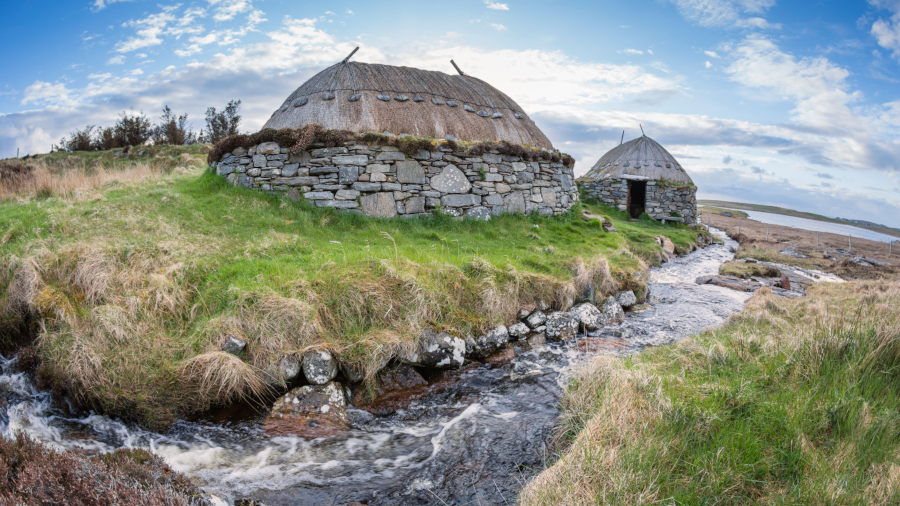
Óðinn
‘Odin’
(4 letters)
The “All Father” and chief among the gods, Óðinn is a multifaceted deity associated with war, wisdom, poetry, and magic. His quests for knowledge are legendary, having sacrificed an eye at Mímir’s well for wisdom and hung from Yggdrasil to gain the runes’ secrets. Accompanied by his ravens, Huginn (thought) and Muninn (memory), and his wolves, Geri and Freki, Óðinn’s presence is felt across all realms, from the halls of Valhalla to the farthest reaches of Midgard.
Sága
(4 letters)
Regarded as a Goddess of Wisdom, Sága’s realm lies deep within the flowing waters of memory and time. Residing in Sokkvabekk, a hall beside a great river, she often hosts Óðinn, with whom she shares tales and drinks from golden cups. Some believe that she may be another manifestation of Frigg, representing the aspect of memory and history.
Þórr
‘Thor’
(4 letters)
Thundering through the realms with his iconic hammer, Mjölnir, Thor stands as the formidable God of Thunder and Battle. Son of Óðinn and the earth goddess Fjörgyn, Thor’s might is unmatched, and his bravery unquestioned. His battles against the giants and the world serpent, Jörmungandr, are legendary. His red beard, fiery temper, and immense strength make him one of the most recognized and revered figures in Norse mythology.
Ullr
(4 letters)
Associated with the chill of winter and the thrill of the hunt, Ullr is the God of Skiing, Winter, and Duel. As the son of Sif, and stepson to Thor, Ullr’s prowess in archery and skiing is unparalleled. In times when the world is blanketed in snow, it is said that Ullr reigns supreme, making him a favored deity among winter enthusiasts.
Váli
(4 letters)
Emerging from the shadows of vengeance, Váli is the God of Revenge. Born for the sole purpose of avenging the death of Baldur, Váli’s destiny was set from the moment of his birth. Growing to full maturity within a day of his birth, he fulfills his purpose by slaying Höðr, the blind god who inadvertently killed Baldur. Váli’s tale underscores the themes of fate, retribution, and the intricate web of relationships among the gods.
Jörð
‘Jord‘
(4 letters)
As the living embodiment of the earth, Jörð stands as a testament to the nurturing and relentless force of nature. Mother to Thor by Óðinn, her essence is deeply rooted in every aspect of life in Midgard. Her tales intertwine with those of creation and the cyclical nature of existence, emphasizing the vital role she plays in maintaining balance and life in the cosmos.
Lofn
(4 letters)
Whispering tales of forbidden passions, Lofn is the delicate Goddess of Forbidden Loves. Her name, which translates to “permission,” showcases her role in blessing and sanctioning unions that might otherwise be frowned upon. In a pantheon filled with tumultuous relationships and intricate tales of love, Lofn’s presence assures that all forms of love find their rightful place.
Loki
(4 letters)
Ever the enigma, Loki is the Trickster and God of Mischief in the Norse pantheon. Though blood-brothers with Óðinn, Loki’s capricious nature often finds him at odds with the other gods. His antics range from playful to malevolent, culminating in the tragic death of Baldur. Father to monsters and gods alike, his complex lineage includes the wolf Fenrir, the world serpent Jörmungandr, and the half-dead, half-living Hel. Loki’s intricate tales underscore themes of chaos, change, and the unpredictable nature of fate.
Máni
(4 letters)
Casting a silvery glow across the realms, Máni, the God of the Moon, orchestrates the rhythms of the night. Brother to Sol, the sun goddess, his celestial journey is a dance of light and shadow. Legends speak of how Máni guides the moon across the sky, with two children, Bil and Hjuki, whom he rescued from earth, accompanying him.
Nótt
(4 letters)
Cloaked in the mysteries of the dark, Nótt is the ethereal Goddess of Night. As the daughter of Narvi and the mother to Dagur, the god of daytime, her essence is woven into the very fabric of time. Her journey across the sky in a chariot, drawn by the horse Hrimfaxi, brings with it dreams, reflections, and the promise of a new dawn.
Borr
(4 letters)
Emerging from the primordial mists, Borr stands as one of the earliest figures in Norse cosmology. As the son of Búri, the first god, Borr’s lineage laid the foundation for the pantheon of gods that would follow. Father to Óðinn, Vili, and Vé with his consort Bestla, Borr’s legacy echoes through time, underscoring the tales of creation and the intricate family ties of the deities.
Búri
(4 letters)
In the annals of Norse mythology, Búri is revered as the very first god. Born from the salty rime stones licked by the primordial cow Auðumbla, Búri emerged as the ruler of prehistory. Though his tales in the sagas are sparse, his significance cannot be understated, as from him springs the lineage of gods that shape the cosmos.
Elli
(4 letters)
In a cosmos where gods flaunt their strength and prowess, Elli stands as a humbling reminder of the inexorable march of time. Representing old age, this goddess once wrestled with Thor during his visit to the hall of the giant Útgarða-Loki. To the surprise of many, Thor could not defeat her, symbolizing that even gods are not immune to the effects of aging and the passage of time.
Hlín
(4 letters)
In the protective embrace of Hlín lies solace and safety. Revered as the Goddess of Consolation and Protection, she stands as a guardian to those in need. Apart from her protective role, Hlín is also one of Frigg’s handmaidens, further emphasizing her importance in the pantheon and her close ties with the queen of the Aesir.
Höðr
‘Hoor‘
(4 letters)
Cloaked in tragedy and mystery, Höðr, the God of Winter, plays a central role in one of the most poignant tales in Norse mythology. Born blind, he was tricked by Loki into killing his brother Baldur using a mistletoe arrow. This tragic event sets the stage for Ragnarök and underscores themes of fate, innocence, and the intricate balance of light and darkness.
Norse Gods with 3 letters in their names
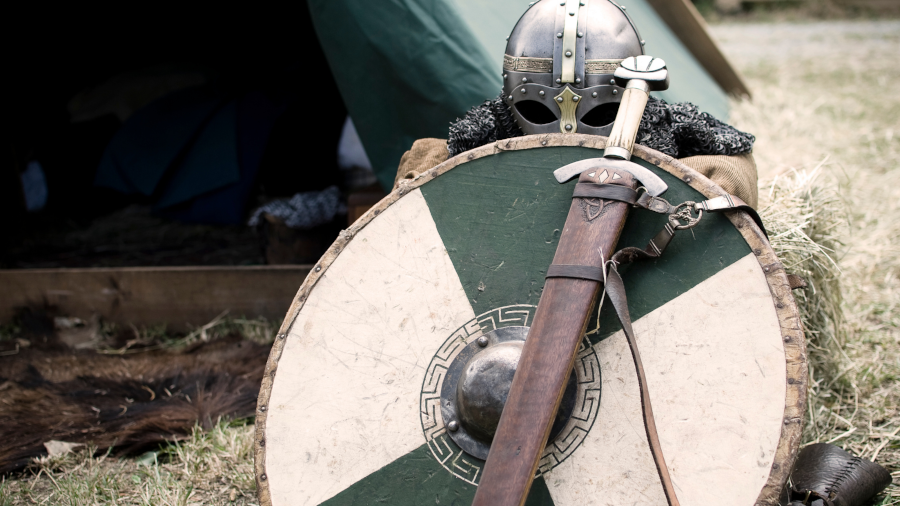
Sol
(3 letters)
Often synonymous with Sunna, Sol is the radiant personification of the Sun in Norse mythology. Her journey across the sky in a chariot, pursued relentlessly by the wolf Sköll, is a daily reminder of the eternal struggle between light and darkness. Her eventual capture by the wolf is prophesied to be one of the harbingers of Ragnarök, emphasizing the transient nature of time and the cyclical dance of creation and destruction.
Eir
(3 letters)
In the vast pantheon of Norse deities, Eir shines as the Goddess of Healing. Her very essence is intertwined with the restoration of health and relief from ailments. Often seen as a handmaiden to Frigg, Eir’s prowess in healing is unparalleled, making her an invaluable figure in the cosmic balance of life and well-being.
Hel
(3 letters)
Veiled in shadow and mystery, Hel reigns as the Queen of Helheim, the Norse underworld. Daughter of Loki and the giantess Angrboða, her realm is the final resting place for those who did not die in battle. Split in appearance, with one half alive and the other dead, she embodies the duality of existence and the afterlife. Her rule over the souls in her domain underscores themes of mortality, fate, and the cyclical nature of life and death.
Norse Gods with 2 letters in their names
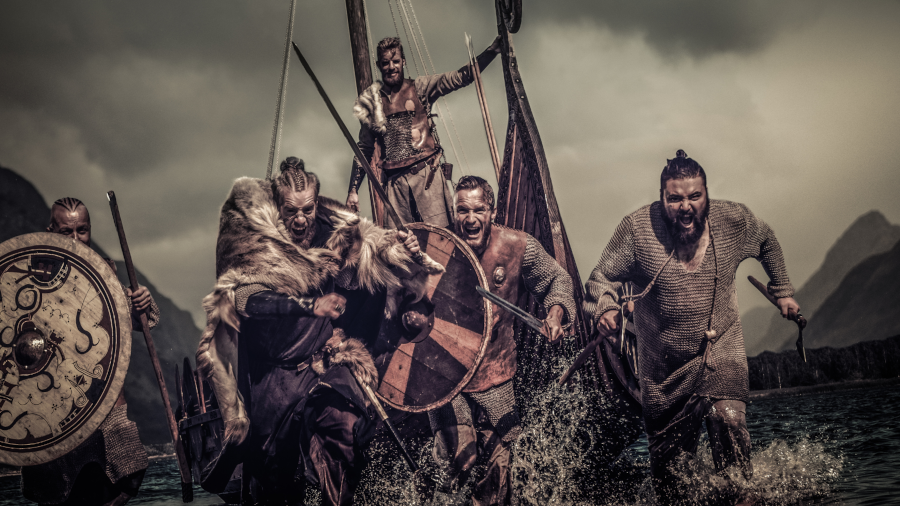
Vé
(2 letters)
Standing alongside his brothers Óðinn and Vili, Vé is one of the three gods of creation in Norse mythology. Together, they shaped the cosmos from the body of the primordial giant Ymir. Vé’s essence is deeply rooted in the sanctity and vitality of life. His name, which translates to “sanctuary” or “shrine,” is a testament to his divine role in the sacred act of creation.
Embracing the Allure of the Ancient North
As we wrap up our journey through the mesmerizing realm of Norse mythology, it’s evident that these tales and names are more than just answers to crossword clues.
They offer a rich tapestry of stories, values, and lessons from a bygone era, resonating even in our modern times. With our handy table in tow, not only will crossword puzzles become a tad easier, but you’ll also carry with you a piece of the ancient North’s mystique.
So, the next time you come across a Norse-themed clue, approach it not just as a challenge, but as an invitation to a world of legends, heroes, and gods. You might also find my article about Egyptian deity crossword clues useful too.
Sources:
https://en.vikidia.org/wiki/List_of_Norse_gods_and_goddesses
https://godsandgoddesses.org/norse/gods/
https://www.routesnorth.com/language-and-culture/norse-gods-goddesses-and-giants/
https://www.realmofhistory.com/2018/01/29/12-norse-gods-goddesses-facts/
